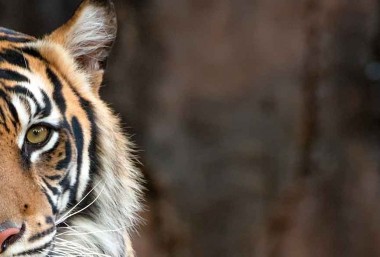Hey cool copy-cats and kittens. The wild Netflix documentary series Tiger King offers a cautionary tale about misusing a competing business’s intellectual property (IP) as a business tactic.
The Tiger King series documents a long-running feud between Joe Exotic and Carole Baskin. Joe Exotic, the eccentric protagonist, owns an exotic animal park and big cat road show. His arch nemesis Carole Baskin owns Big Cat Rescue (BCR)—a sanctuary which rescues big cats that have suffered abuse at the hands of private owners.
The trade mark infringement lawsuit
In 2010, in retaliation for Baskin urging her social media followers to boycott his big cat shows, Joe Exotic adopted the name BIG CAT RESCUE ENTERTAINMENT for his business and launched new marketing material that looked uncannily like that of BCR:
|
BCR’s trade marks |
Exotic’s infringing marketing material |
| |
|
BCR launched proceedings against Joe Exotic and his related corporations alleging trade mark infringement. Specifically, BCR complained that Exotic had:
- adopted a design depiction of the deceptive and confusingly similar BIG CAT RESCUE ENTERTAINMENT name in a style intended to copy BCR Corp’s federally registered design mark:
- utilised a photo of a snow leopard’s eyes, virtually identical to the photograph of a snow leopard that is used as the focal point of BCR Corp’s website www.bigcatrescue.org
- purchased a Florida telephone number in the 813 area code and printed ‘Florida Office‘ above it on marketing materials to further cause the public to mistakenly believe that the defendant’s business was the same as or affiliated with BCR Corp.[1]
According to BCR’s complaint, Exotic boasted on Facebook that he registered the ‘Big Cat Rescue Entertainment’ name so BCR Corp “could ruin” its goodwill “on google all by yourself [sic], and it’s working”.[2]
In the end, Exotic agreed to enter into a consent judgement concluding that he had infringed BCR’s trade mark rights and engaged in false designation of origin and unfair competition. Exotic was ordered to pay nearly US$1 million in compensatory damages and legal costs to BCR.[3]
The Copyright infringement lawsuit
In 2013, BCR filed a new set of proceedings against Exotic, this time for copyright infringement. BCR complained that Exotic had taken a photograph from BCR’s Facebook page and reproduced it on his YouTube channel without BCR’s permission. The photograph showed BCR employees holding dead, bloodied rabbits with surrounding context implying that BCR was itself guilty of animal cruelty for feeding rabbits to its tigers.
Again, Exotic agreed to settle the dispute before it could go to trial. This time the court ordered Exotic to pay a total of US$50,000 to BCR and cease all use of the photograph.[4]
Carole Baskin – domain squatter
Carole Baskin was on the other side of similar reputational warfare a few years earlier when she obtained the domain name docantle.net. Doc Antle also features in the Netflix series as another big cat park owner and target of Carole Baskin’s efforts to end animal cruelty.
Baskin allegedly set up the domain name so that it redirected users to www.911animalabuse.com, a website that accuses the likes of Doc Antle and Joe Exotic of animal abuse.
Doc Antle made a complaint to WIPO alleging that Carole Baskin had registered the trade mark in bad faith, intending to confuse internet users trying to access Doc Antle’s website. WIPO found in favour of Doc Antle and ordered that the domain name be transferred to him.
The moral of the story
There are a lot of lessons that viewers can take away from Tiger King. Insofar as IP rights are concerned, generally:
- having registered rights, such as a registered trade mark, will have a deterrent effect when it comes to would-be copycats looking to trade on your name and reputation
- it’s easier to enforce registered rights, especially in the face of flagrant infringements like those that involved Exotic and Carole Baskin
- even if you don’t have registered rights, you can potentially rely on unregistered rights arising from the use of a particular get-up or trade dress, and bring a claim under the law of passing off, which can be used to stop traders from misrepresenting goods or services they provide as those of others.
If you have encountered problems with competitors and trade rivals copying your trade marks or mimicking the way in which you market your products and services, you can contact us for advice on the steps you might be able to take to protect your business.
[1] (Complaint), Big Cat Rescue Corp. v. Big Cat Rescue Ent. Grp., Inc., Case No. 8:11-cv-209 (MSS)(MAP) (M.D. Fla.). at 17
[2] Above, at 15.
[3] (Consent Final Judgement and Permanent Injunction), Big Cat Rescue Corp. v. Big Cat Rescue Ent. Grp., Inc., Case No. 8:11-cv-209 (MSS)(MAP) (M.D. Fla.). at 4.


